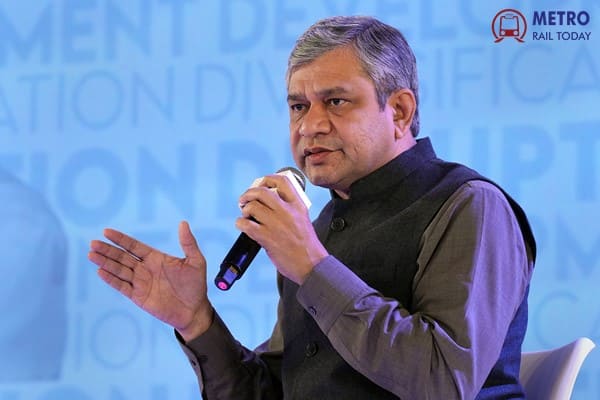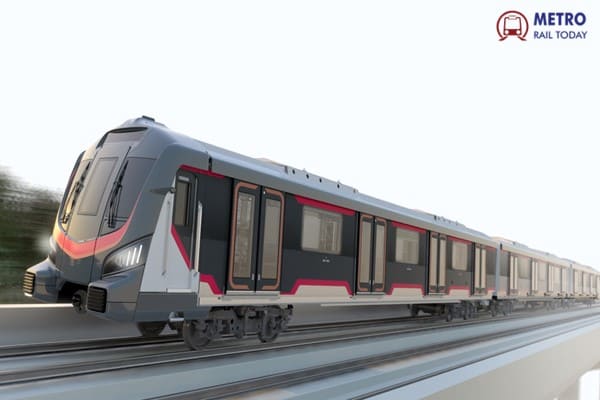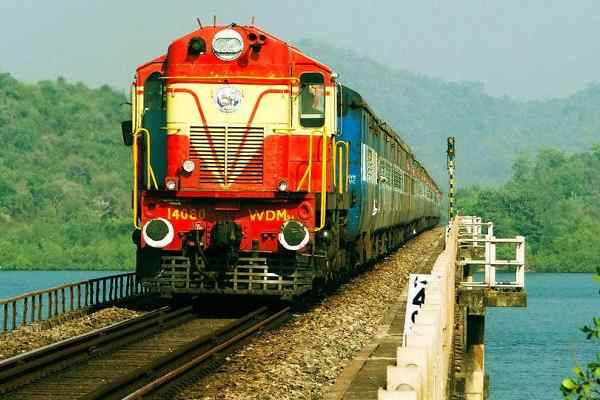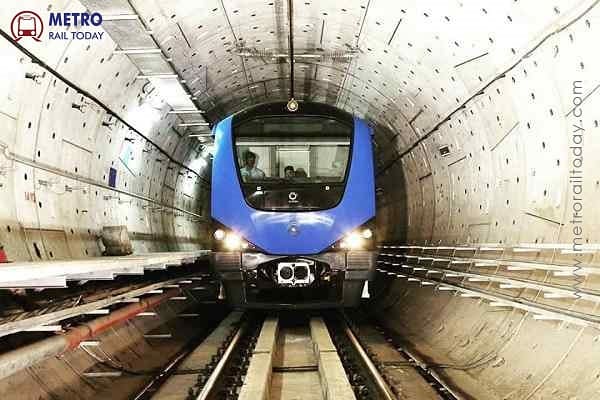 CMRL achieves second Tunnel Breakthrough at Thirumayilai for Chennai Metro Phase 2 Corridor 4
CMRL achieves second Tunnel Breakthrough at Thirumayilai for Chennai Metro Phase 2 Corridor 4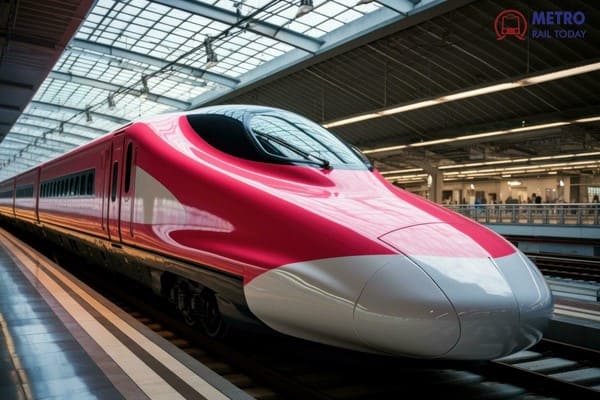 NHSRCL invites Single Tender from BEML for Bullet Train Rolling Stock Package
NHSRCL invites Single Tender from BEML for Bullet Train Rolling Stock Package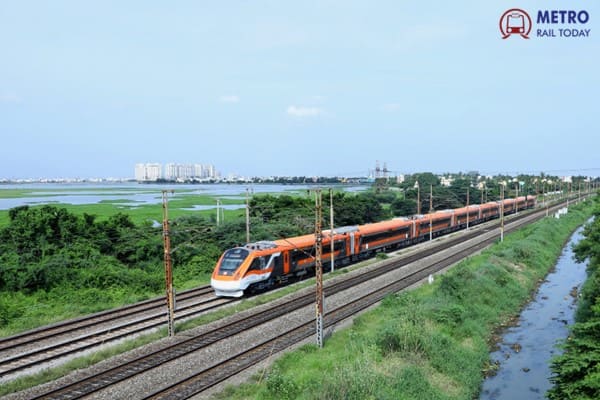 Railway Minister reviews progress of Ahmedabad–Dholera Semi High-Speed Rail Project
Railway Minister reviews progress of Ahmedabad–Dholera Semi High-Speed Rail Project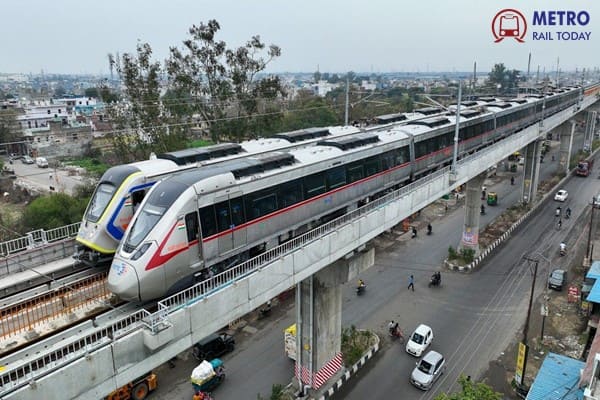 National Planning Group reviews key Rail & Metro projects under PM GatiShakti
National Planning Group reviews key Rail & Metro projects under PM GatiShakti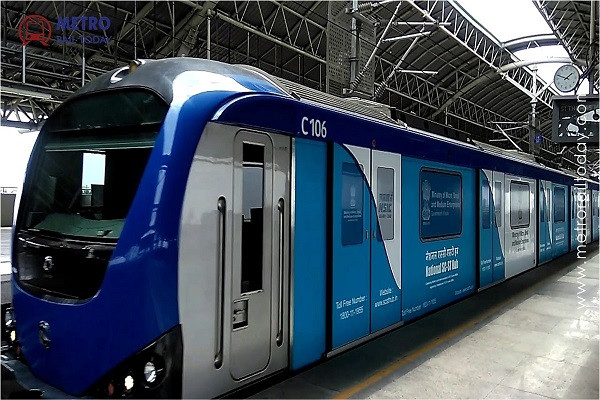 CMRS approves Driverless Metro Operations on first stretch of Chennai Metro Phase 2 Corridor 4
CMRS approves Driverless Metro Operations on first stretch of Chennai Metro Phase 2 Corridor 4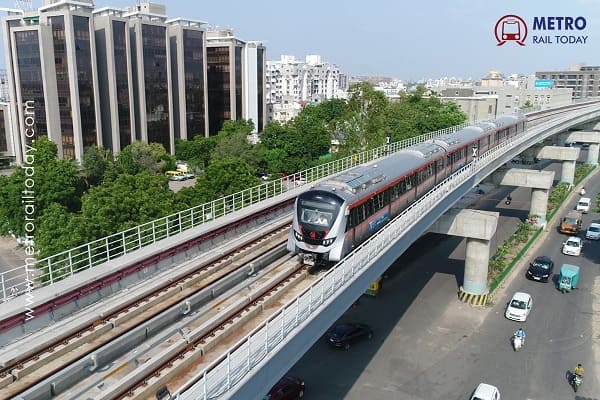 J Kumar Infraprojects completes Final Tunnel Breakthrough for Surat Metro Phase 1 Project
J Kumar Infraprojects completes Final Tunnel Breakthrough for Surat Metro Phase 1 Project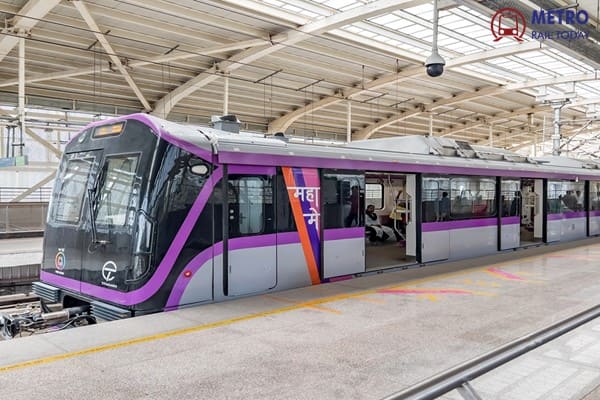 Apurvakriti Infrastructure awarded Ballastless Track Contract for Pune Metro Reach-1 Extension
Apurvakriti Infrastructure awarded Ballastless Track Contract for Pune Metro Reach-1 Extension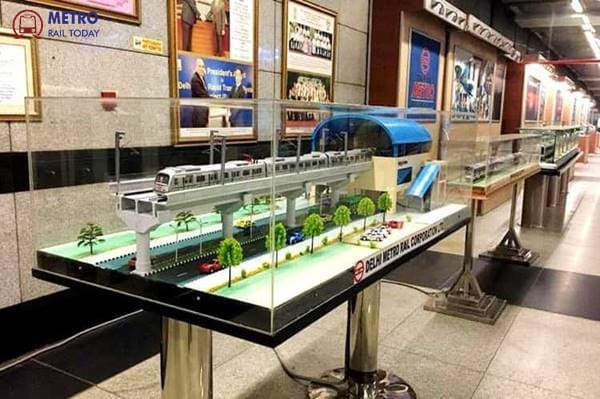 SAM India Builtwell bags first ₹222.76 Crore Civil Contract for Delhi Metro Phase V
SAM India Builtwell bags first ₹222.76 Crore Civil Contract for Delhi Metro Phase V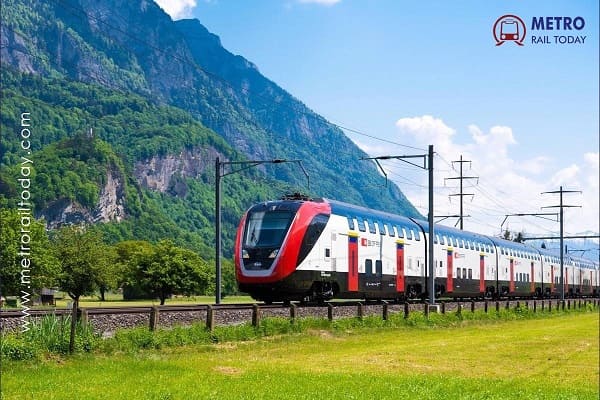 HRIDC conducts Investors Pre-Bid Meeting for Haryana Orbital Rail Corridor
HRIDC conducts Investors Pre-Bid Meeting for Haryana Orbital Rail Corridor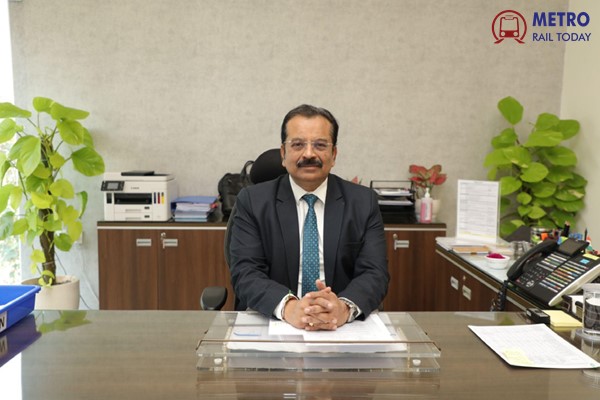 NCRTC Chief Shalabh Goel appointed as General Manager of Central Railway
NCRTC Chief Shalabh Goel appointed as General Manager of Central Railway
India’s first ₹136 crore Hydrogen-Powered Train set to launch on Jind–Sonipat route in Haryana
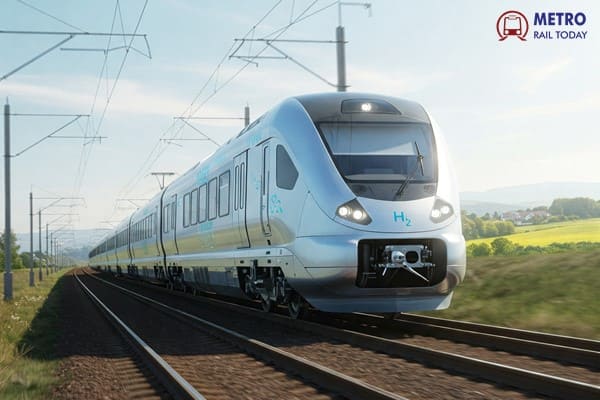
New Delhi, India (Metro Rail Today): In a landmark step towards sustainable and clean mobility, Indian Railways is ready to launch its first-ever hydrogen-powered train, a ₹136 crore innovation developed at the Integral Coach Factory (ICF), Chennai. After successfully completing all key trials, the train will soon commence operations on the Jind–Sonipat route in Haryana, ushering in a new era of zero-emission transport in the country.
Running entirely on hydrogen fuel cells, the train will cover 356 kilometers daily, carrying over 2,600 passengers, while emitting nothing but water vapor. This clean-energy marvel makes India one of the few countries globally to deploy hydrogen trains, reinforcing its commitment to green transformation and technological self-reliance.
“This project represents not just a technological leap, but a historic shift in how we approach mobility—clean, modern, and entirely made in India,” said a senior official at the Ministry of Railways.
Mrs. Mamta Shah, MD & CEO of Urban Infra Group, lauded the development, “The launch of India’s first hydrogen-powered train is a defining moment for the nation’s transport sector. It signals the maturity of our indigenous innovation ecosystem and our seriousness about decarbonizing mobility. Urban Infra Group sees this as a giant step forward in aligning rail transport with the country’s green energy vision.”
The train’s hydrogen propulsion system contributes to zero carbon emissions and significantly reduces noise, creating a more peaceful travel experience. Its development aligns with the National Green Hydrogen Mission and India’s ambitious target of achieving net-zero carbon emissions by 2070.
Powered by a 1,200 HP hydrogen engine—one of the most powerful of its kind in the world—the train outperforms global counterparts, which typically range between 500–600 HP. The indigenous technology behind it was developed by the Research, Design, and Standards Organisation (RDSO), Lucknow, showcasing India's growing engineering expertise in clean energy systems.
The hydrogen fuel cells boast higher energy conversion efficiency than traditional diesel engines and use Distributed Power Cars (DPCs) to ensure balanced power distribution across the train's eight coaches.
The initial rollout will occur on the 89-km Jind–Sonipat section, making it India's first fully hydrogen-powered railway corridor. With eight coaches, the train can carry up to 2,638 passengers and reach speeds of 110 km/h, offering a safe and efficient alternative to diesel-powered regional trains.
This rollout is part of the broader “Hydrogen for Heritage” initiative, which envisions deploying 35 hydrogen trains on heritage and hill routes, preserving the charm of Indian railways while promoting sustainability.
Safety is integral to the train’s design. Key features include pressure relief valves, hydrogen leak and flame detection sensors, advanced temperature monitoring systems, and purpose-built ventilation mechanisms to eliminate any risk of fuel exposure. The system has undergone a rigorous third-party safety audit by TUV-SUD Germany, a global leader in certification and safety standards.
A dedicated hydrogen fueling facility has been established at Jind, with 3,000-kg capacity and safe storage for both low- and high-pressure hydrogen, approved by the Petroleum and Explosives Safety Organisation (PESO).
Though the upfront cost of a hydrogen train exceeds that of conventional diesel locomotives, the long-term savings from reduced fuel costs, lower maintenance, and fewer emissions provide a strong return on investment. This shift also helps reduce India’s dependence on imported diesel, bolstering national energy security.





